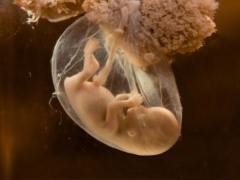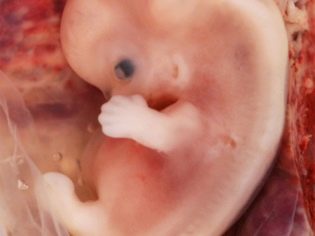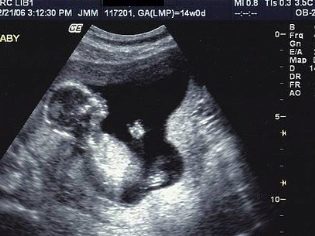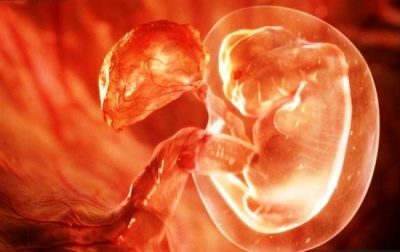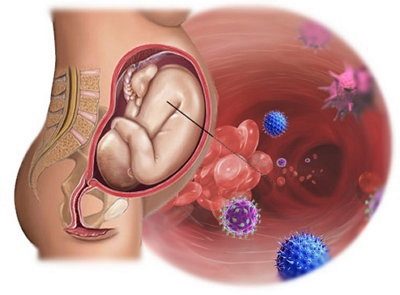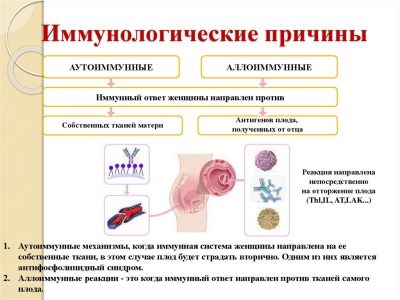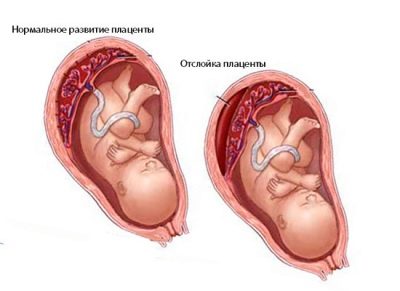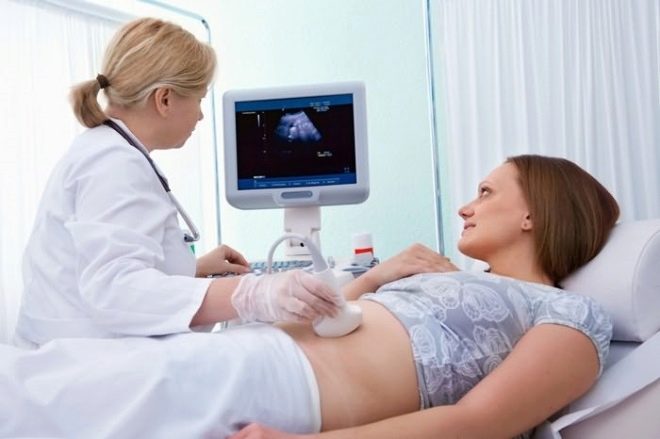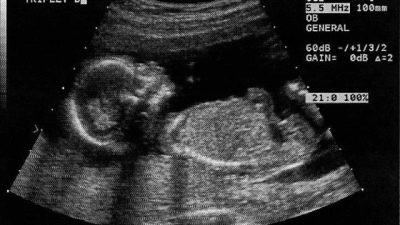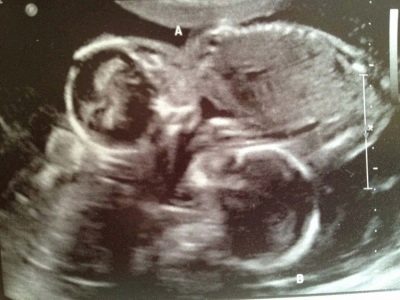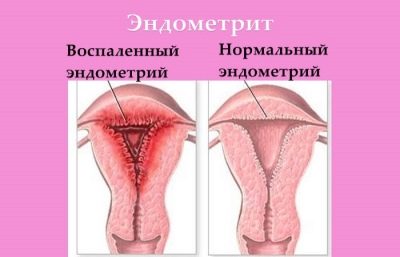Pregnancy after IVF: Causes and Effects
Not every successful IVF attempt ends in childbirth. Unfortunately, the statistics are ruthless. The chances of a successful IVF attempt in the first protocol are about 40% in women under 35 years old without pathologies of the uterus, ovaries, and endocrine system. And only 60% of these lucky women will be able to give birth to their baby or a few babies, because multiple births after IVF are not at all uncommon. Among the reasons for which the pregnancy can not be saved - fetal dying. Why this happens and what are the predictions and consequences, we will tell in this article.
What it is?
A deadly pregnancy is called pregnancy, in which the baby stopped developing at any of the stages and died. When pregnancy occurs as a result of natural conception, the probability of such an outcome, according to medical statistics, is estimated at 1.5-3%. After IVF, a frozen pregnancy occurs much more frequently. The probability of death of the baby at an early period or slightly later (up to the 28th week of pregnancy) is about 15%.
Most often, the fetus ceases to develop precisely in the early period of pregnancy. Fading after 20 weeks occurs much less frequently, and after 28 weeks almost never occurs. The most dangerous in terms of stopping a baby or babies in development are 3-4 weeks after embryo transfer, 8-11 weeks in terms of gestational age (from the first day of the last menstrual period), and also 14-16 weeks of pregnancy.
By itself, the undeveloped (frozen) pregnancy in the obstetric classification refers to the category of miscarriage. Each such case requires an individual approach and a detailed study of the causes of fetal death.
After a frozen pregnancy with the elimination of causes, pregnancy is possible both naturally and through a new IVF attempt.
The reasons
After IVF, as already mentioned, missed pregnancies are more common. It is difficult to say why this is happening, but experts are inclined to believe that interference in nature’s affairs, which is in vitro fertilization, is always associated with certain risks. The intrauterine death of the baby in this case looks like a natural consequence of the violation of the plans of nature by the doctors in relation to this married couple.
If we speak in a more specific medical language, far from religion and esotericism, then the main cause of missed abortion is considered the impossibility of further growth and development of the fetus or fetuses during a multiple pregnancy. Not all the causes have been studied today and are known to doctors, therefore, it is not always possible to establish what led to a halt in development. Among the most common causes are the following.
Anomalies of fetal development
Of course, embryos are studied before transplantation, substandard ones are screened out, but it is impossible for any person to foresee all possible, including genetic anomalies. If a baby develops with gross anomalies, at some point its further growth becomes impossible. To blame for this fertility specialist, who conducted the procedure of IVF, yourself or anyone else does not have the slightest sense.Such a frozen pregnancy is the result of natural selection, according to which unviable individuals die.
Endocrine disorders
Pregnancy after IVF is often accompanied by hormonal abnormalities. To save the result of successful IVF attempts, hormone preparations are prescribed, but even in women who regularly take all the recommended pills in strictly indicated doses, a drop in the level of estrogen or progesterone may occur. Sometimes it’s just enough to be so nervous that the hormonal balance is disturbed.
Hops hormone concentrations pose a threat of abortion both after natural conception and after in vitro fertilization. However, after IVF this probability is significantly higher.
The risk group includes women with a history of diabetes, thyroid problems.
Infections
At the time of embryo replanting, the woman was fully examined, including for various infections. But the likelihood of contracting sexually transmitted infections from a partner always exists; moreover, nobody is protected from the flu and acute respiratory viral infections, as well as rubella, toxoplasmosis, especially if there were no such diseases before and there are no specific antibodies to pathogens in the body.
Such infections are most dangerous in the early stages. Even if the pregnancy after the illness persists, doctors can insist on interrupting it, because such infections as rubella or herpes can cause serious abnormalities in the child.
Immune rejection
Sometimes a woman’s immunity categorically refuses to accept a new organism growing inside her as related. In this case, antibodies are produced against it, which as a result and kill the crumbs. Immunity continues to grow. This reason is one of the most difficult to remove.
Problems with the placenta
Quite often, women after IVF have various problems with the "place for children". It is formed with anomalies, it is present, it is in the marginal position, it is rapidly aging or, on the contrary, it develops too slowly. Increased risk of placental abruption at any stage of pregnancy. These kinds of problems can cause a baby to be inadequately supplied with vitamins, mineral nutrients, and oxygen. As a result, the fetus or both fetuses may die in a multiple pregnancy.
Age
The older the woman at the time of IVF, the higher the likelihood of fetal development fading. Thus, in women younger than 35 years, missed abortion after IVF occurs in 8–10% of cases, and in women about 40 and slightly older — already in 15–18% of cases. About age risks of miscarriage, doctors usually warn at the preparatory stage for IVF.
If a woman gives written consent to the procedure of artificial insemination, then she should understand the difficulties with which further events may be due to age.
Burdened history
The more a woman has had an abortion before, the thinner and weaker her endometrium is. The small thickness and heterogeneity of the physiological inner layer of the uterine cavity creates not only the risk of miscarriage, but also the threat of missed abortion. Any genital diseases, as well as diseases of the uterus, ovaries, tubes increase the likelihood of a tragic outcome.
Bad habits
It would seem that IVFs are deliberately being used, there is no talk of accidental pregnancy, it is always long-awaited and suffered. However, practice shows that despite all this, some women cannot give up their bad habits even after successful IVF - they continue to smoke, from time to time they can afford a glass of wine.
Both nicotine and alcohol dozens of times increase the likelihood of fetal fading, stopping its development even after natural conception, after IVF such risks are much higher.
Symptoms and signs
If fetal fading occurs at an early period, it is almost impossible to determine its signs.Is that the manifestations of toxicosis, if it was, will be less. Some women say that her chest has suddenly stopped hurting, and nausea has disappeared. There are usually no other signs. A few days after the death of the fetus, it still remains in the uterus, but the woman can feel not only the disappearance of the symptoms of toxicosis, but also the pulling pain in the lower back and lower abdomen.
Basal temperature decreases. As this condition continues, a woman may develop a brownish discharge from the genitals, at first scanty, then more abundant. Unnoticed death of the baby can remain up to 3-4 weeks, after this period a spontaneous miscarriage usually occurs, accompanied by copious blood discharge with clots, spasms and cramping pains.
Sometimes the fetus may not be rejected and remain in the uterus for a longer time. In this case, the likelihood of sepsis, severe inflammation, amputation of the uterus, death of a woman increases.
In later periods, fetal fading can be determined by the absence of its movement. If within 12 hours the baby has not made a single movement, it is necessary to visit the doctor to make sure that the baby is alive and well.
Diagnostics
Do not bring the problem to the extreme will help regular adherence to doctor visits. Women after IVF are advised to come to a scheduled appointment more often than other pregnant women. The doctor will be able to ascertain the pregnancy by the results of the ultrasound - the fetus will not show physical activity, his heart, which can be heard from the 5th week of pregnancy using an ultrasound sensor, will be silent.
When the baby died, they will tell its size at the time of the tragedy. If the ultrasound results in a fertilized egg or embryo lagging in size for a couple of weeks, this would suggest that the death occurred about a half month ago.
A blood test for hCG will show a sharp decrease in the level of chorionic gonadotropic hormone, which is produced by the shells of the chorion. The hormone level will not match the duration of the pregnancy.
There is no way to treat a non-developing pregnancy. Scraping is shown to the woman. Embryo tissue samples are sent to the genetic laboratory to find out whether genetic ailments or gross chromosomal abnormalities caused the development to stop.
If according to the results of the diagnostics only one of the babies in the course of twins has stopped, the situation is assessed individually. If the freezing of one fetus happened before the 10th week of pregnancy, it is considered that the frozen fetus is not dangerous for the second child. Pregnancy can be saved.
In the second trimester, with a similar problem, the probability to bear and give birth to a second child is about 60% with early detection and proper assistance measures, which include intrauterine blood transfusion to the fetus.
In the later periods, at the death of one of the babies, emergency delivery is carried out by caesarean section.
When can I do the following IVF?
A woman can return to pregnancy planning after the doctor receives the results of genetic analysis of fetal tissues, as well as the results of other tests. After scraping, a woman needs time for treatment - she is prescribed antibiotics, anti-inflammatory drugs, after which therapy is needed to eliminate the underlying cause of the tragedy, if known.
It is usually not recommended to start planning re-IVF for six months after curettage. After this period, with normal analyzes it is possible to do the following IVF and hope for a more favorable outcome.
How to survive?
It is very difficult for women to survive the loss of the long-awaited baby, to which some have been going on not for one but several protocols of IVF.In most cases, it is impossible to do without the help of a psychotherapist, because fear, pain, guilt, perplexity, unwillingness to accept the reality that a woman is experiencing are akin to the feelings that people experience when they lose a very close and dear person.
Psychologists advise:
- do not close;
- do not hide emotions - if you want to cry, you need to cry;
- Do not hide from people, continue to communicate, even if it really does not want to;
- stop blaming yourself, in 99% of cases (the only exception is smoking and alcohol during gestation!) the woman could not influence the process of stopping the development of the child;
- pass all recommended examinations;
- not to abandon the new ECO attempt, to see the target and go to it;
- not to concentrate only on pregnancy, to find a place in your life for traveling, guests, new books, films, work, hobbies;
- to improve relations with the spouse, to pay more attention to sex after the course of treatment, and also to find common hobbies and common topics (not about IVF !!!).
Reviews
According to the reviews left by women in the thematic forums, in most cases, the doctors did not manage to establish the true cause of the missed abortion. But this did not in the least prevent the onset of a second pregnancy, which, fortunately, was able to be conveyed before the due date of birth.
In the absence of pronounced problems with the endometrium of the uterus, some women, doctors allow a second protocol within three months after missed abortion, and quite often it is successful.
In rare cases, no matter how strange it may sound, doctors perceive pregnancy that has stopped in the early period after IVF as a positive trend, progress. This applies to cases where about 6-8 ECO protocols were unsuccessful for inexplicable reasons. Then even if such a sad outcome, but still it is the hope that one of the subsequent attempts will necessarily be crowned with success. This is better than nothing.
Freezing pregnancy is not a reason to refuse further planning and put up with infertility.
See the following video for the reasons for failures after IVF.
